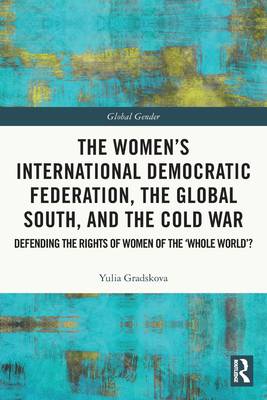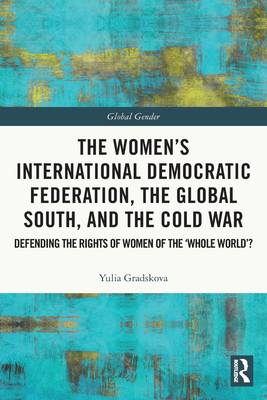
- Retrait gratuit dans votre magasin Club
- 7.000.000 titres dans notre catalogue
- Payer en toute sécurité
- Toujours un magasin près de chez vous
- Retrait gratuit dans votre magasin Club
- 7.000.0000 titres dans notre catalogue
- Payer en toute sécurité
- Toujours un magasin près de chez vous
The Women's International Democratic Federation, the Global South and the Cold War
Defending the Rights of Women of the 'Whole World'?
Yulia GradskovaDescription
This book examines the role of the Women's International Defense Federation (WIDF) in transnational women's activism in the context of the Cold War, and in connection to the rights of women from Asia, Africa and Latin America.
Combining a global history and postcolonial theory approach, this monograph shines light on an underrepresented organisation and its important role in the Cold War, Twentieth Century women's rights and Soviet history. Questioning whether the organization acted for women's causes or whether it was merely a Cold War political instrument, the book analyzes and problematizes the place that the WIDF had in the politics of the Soviet Union, examining the ideology and politics of the WIDF and state socialist propaganda regarding women's equality and rights. Using Soviet archival documents of the organizations, the book offers a new perspective on the complexities of the development of global women's rights movement divided by the Cold War confrontations.
This is an important study suitable for students and researchers in Women's and Gender History, Eastern European History and Gender Studies.
Spécifications
Parties prenantes
- Auteur(s) :
- Editeur:
Contenu
- Nombre de pages :
- 212
- Langue:
- Anglais
- Collection :
Caractéristiques
- EAN:
- 9780367504786
- Date de parution :
- 01-08-22
- Format:
- Livre broché
- Format numérique:
- Trade paperback (VS)
- Dimensions :
- 156 mm x 234 mm
- Poids :
- 317 g

Les avis
Nous publions uniquement les avis qui respectent les conditions requises. Consultez nos conditions pour les avis.






